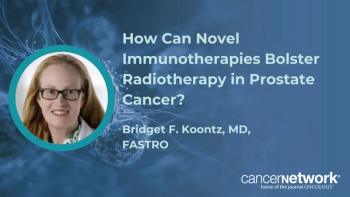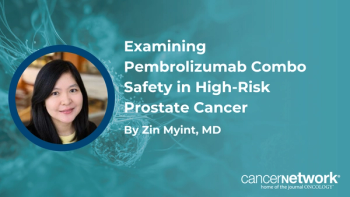
Testosterone Replacement Linked to Lower Rates of Aggressive Prostate Cancer
Men who receive testosterone replacement therapy had an increased rate of favorable-risk prostate cancer compared to those who did not use the therapy, and a decreased rate of aggressive prostate cancer.
Men who receive testosterone replacement therapy (TRT) had an increased rate of favorable-risk prostate cancer compared to those who did not use the therapy, and a decreased rate of aggressive prostate cancer. The favorable risk disease may represent a detection bias in these patients, according to the researchers.
Research into the association between TRT and prostate cancer risk has been somewhat inconclusive in the past. “Given the rapid increase in the administration of TRT in recent years, an association with the risk of prostate cancer has important implications,” wrote study authors led by
They conducted a nested case-control study based on the National Prostate Cancer Register of Sweden. This included all 38,570 cases diagnosed from 2009 to 2012, along with 192,838 age-matched men without prostate cancer. The results of the analysis were
A total of 284 prostate cancer patients (1%) and 1,378 healthy men (1%) filled prescriptions for TRT. On a multivariable analysis, exposure to TRT was not associated with overall prostate cancer risk, with an odds ratio (OR) of 1.03 (95% CI, 0.90–1.17). A lower Charlson comorbidity index score, being married, and higher education levels were all associated with more favorable-risk prostate cancer and with overall prostate cancer, but not with aggressive disease.
There was an association between TRT exposure and favorable-risk prostate cancer, with an OR of 1.35 (95% CI, 1.16–1.56). There was also an association with aggressive prostate cancer, in the opposite direction, with an OR of 0.50 (95% CI, 0.37–0.67). The increase in favorable-risk disease was observed during the first year of TRT exposure, while the reduction in aggressive disease risk became apparent only after at least 1 year of therapy.
“Although there was more favorable-risk prostate cancer among men who received TRT, this finding may reflect physician-recommended prostate cancer screening in men who take TRT,” the authors wrote. They also pointed out several possible biologic mechanisms that could explain the decrease in aggressive disease, including testosterone’s contribution to epithelial cell differentiation and function in the normal prostate.
The study was limited by a lack of data on circulating testosterone levels, which make any connection between changes in hormone levels and prostate cancer risk impossible to evaluate. Still, they concluded that “the findings suggest that from a prostate cancer perspective, TRT is safe in hypogonadal men.”
Newsletter
Stay up to date on recent advances in the multidisciplinary approach to cancer.



















































